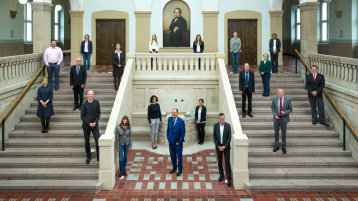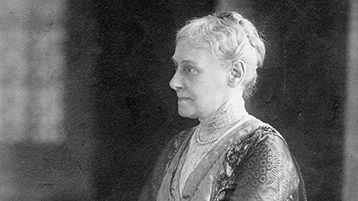Mathilde-von-Mevissen Funding
Promotion of doctoral positions for women
Increasing the proportion of women among the academic staff is a declared gender equality policy goal of TH Köln. To achieve this objective, TH Köln launched a funding program in the spirit of Mathilde von Mevissen in 2013. In addition to three other areas of the Mathilde von Mevissen program, the focus is on promoting female scientists for top positions. Specifically, the promotion of female doctoral positions is intended to increase the proportion of female doctoral candidates at TH Köln, preferably in the MINT subjects. With this gender equality measure, women scientists get the opportunity to pursue a doctorate within a research project and gain experience in university didactics.
In the current round, six female doctoral candidates receive funding through the program for a period of up to three years by providing means for WMA positions.
Mathilde von Mevissen doctoral candidates
 Mathilde von Mevissen-Figur am Kölner Rathausturm
(Image: Raimond Spekking, wikimedia commons)
Mathilde von Mevissen-Figur am Kölner Rathausturm
(Image: Raimond Spekking, wikimedia commons)
Who was Mathilde von Mevissen?
Mathilde von Mevissen (1848-1924) from Cologne was one of the most influential women's rights activists of the 19th and 20th centuries with her initiatives to improve educational opportunities for girls and women. In her tireless struggle to get women admitted to universities, she came to believe that women can only get an academic education if they meet the same educational requirements as men. To improve girls 'education in Cologne, she founded, with the support of friends and acquaintances, the association "Mädchengymnasium Köln", with the help of which she established a humanistic girls' high school. After the Prussian reform of the girls' school system in 1908, the school became a full-fledged girls' high school and was taken over from the city of Cologne. In 1909, the association "Mädchengymnasium Köln" was transferred to the "Verein Frauenstudium" and from now on devoted itself to the financial support of female students. Mathilde von Mevissen insisted on admitting up to three female students herself and supporting all female students as a mentor in coping with their everyday university life.



